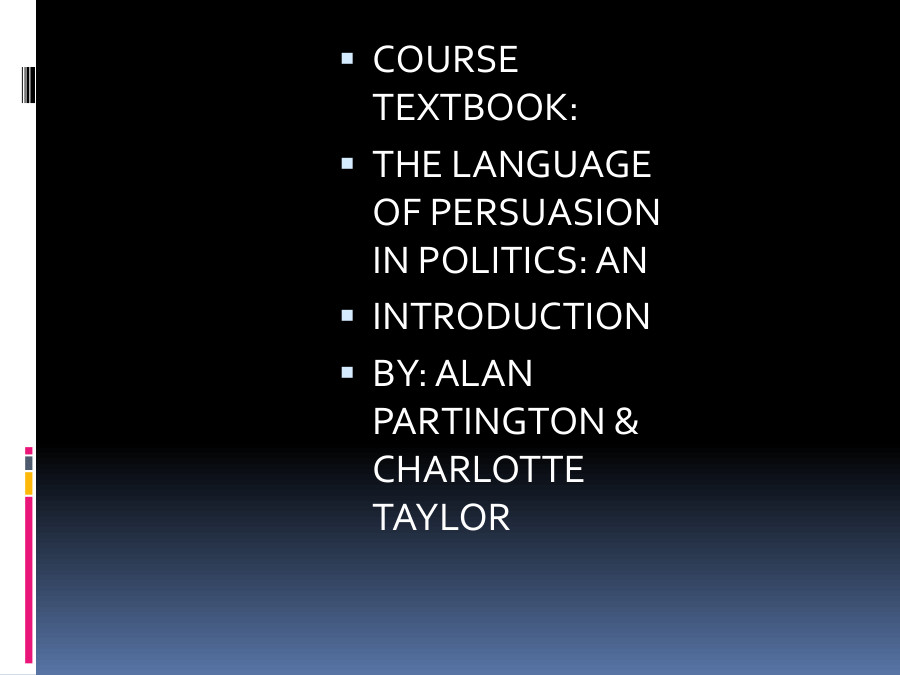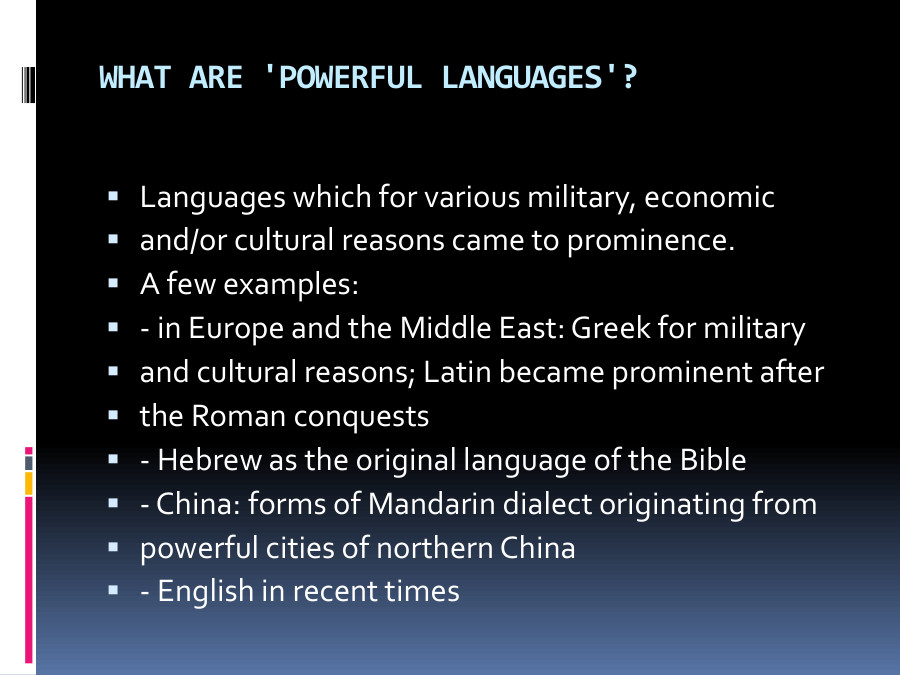 Hire a Tutor
Hire a Tutor 














The Language of Persuasion In Politics: An Introduction By: Alan Partington & Charlotte Taylo.
8 years of teaching experience
Qualification: BA, LLB, MA, LLM, PhD
Teaches: Communicative English, English, Hindi, Spoken English, Contract Law, Law, Literature
